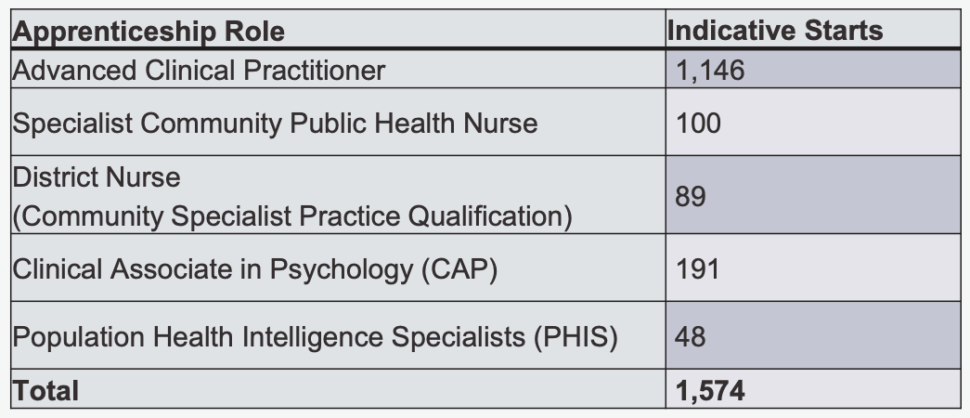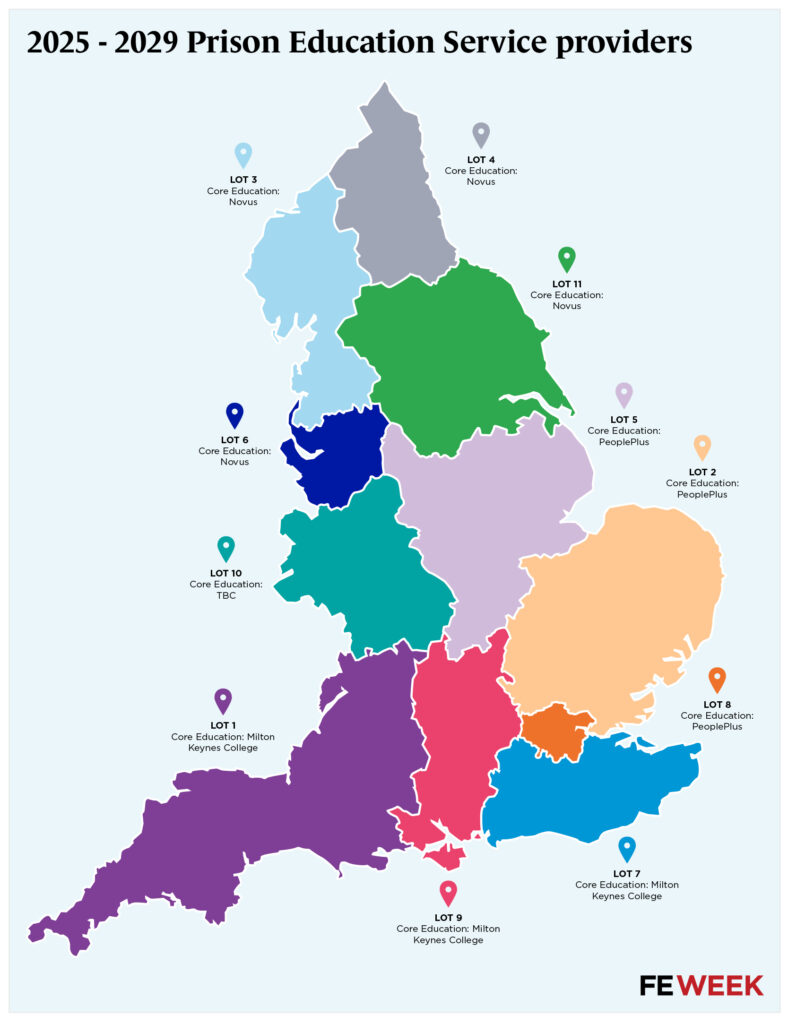A fake business and phoney director were created by an alleged “rogue employee” of an international tech firm to defraud the UK taxpayer through skills bootcamp contracts, it has been claimed.
The alarming revelation at CoGrammar Ltd was uncovered through a government fraud investigation which identified over 150 funding claims for interview offers with a made up employer to claim milestone payments on the lucrative agreements.
A fabricated character was impersonated in email exchanges with investigators and conducted at least one job interview with a real learner.
A full audit of the firm’s multi-million-pound funding claims later found a series of other concerns, such as deploying its own staff to conduct bootcamp interviews instead of employers, as well as “improbable job offers” from small or dormant companies.
Bosses at CoGrammar, who are suing the DfE for £5.8 million in non-payments following termination of its contracts, claim the alleged fraud was an isolated incident and reported its own former employee, who has multiple past fraud convictions, to the police via Action Fraud.
Despite its own Action Fraud referral, CoGrammar denies that “it or any of its employees defrauded or attempted to defraud” the DfE.
The firm argues through court documents that DfE cannot withhold payments “on the basis of generalised concerns absent any finding of breach or fraud” or what it claims was a “materially flawed” audit.
The case raises questions over the DfE’s audit approach. In recent weeks, officials initially claimed the department was owed around £45,000 before extraordinarily switching to a position where it paid £1.5 million to CoGrammar after the firm pointed out major errors in the audit report.
CoGrammar, also known as HyperionDev and run by CEO Riaz Moola who has been dubbed the ‘Steve Jobs of South Africa’ in the country’s Sunday Times, has denied any wrongdoing and is continuing to challenge the DfE through the courts.
Meanwhile, the ex-employee said to have conducted the alleged fraud claims he is being used as a scapegoat and that his past convictions are being “weaponised to deflect” from “failures” at the company.
It comes months after FE Week revealed the same firm charged unsuspecting bootcamp learners thousands of pounds for the course, which was supposed to be fully funded, after the government put a stop to payments.
From South Africa to England
Rishi Sunak’s Conservative government allocated over half a billion pounds to spend on a skills bootcamp programme between 2022-25, to teach people in up to 16 weeks for industries where there is a shortage of workers.
CoGrammar, which operates mostly from South Africa, won contracts worth up to £22 million from the DfE to train thousands of learners in England in subjects such as data science, web development and software engineering. It secured similar contracts from multiple mayoral authorities.
Bootcamp providers can claim payments when learners start a course – milestone one; when there is an offer of an interview with an employer for a live vacancy that will utilise the skills obtained on the course – milestone two; and then if the learner secures a new job in the area they trained in – milestone three.
CoGrammar was paid up to £4,950 for each bootcamp learner, of which it enrolled over 5,000.
The DfE suspended payments in April 2024 after identifying a 53 per cent error rate in milestone two claims and a 60 per cent error rate for milestone three claims from a sample of 375 learners.
Officials then terminated the company’s contracts in September following an “urgent investigation” by the Government Internal Audit Agency (GIAA) counter fraud and investigations team.
‘Fraud’ and ‘dishonesty’
Court documents from the DfE, seen by FE Week, state that CoGrammar submitted “fraudulent claims” for milestone payments for learners associated with a company called Staton Mortgage and Protection Services.
Actions by CoGrammar’s then-head of employer relations, Andrew Alden, “led to the fabrication of evidence” including making up a fake company known as Staton Group, by creating a domain name to facilitate the exchange of emails to appear genuine.
A “fictitious persona” called Phillip Staton was also cooked up as the director of Staton Group and was even impersonated during email exchanges with investigators.
A total of 155 false milestone two claims were made using a fabricated template designed to provide confirmation that the learners had interview offers from Staton Mortgage and Protection Services, according to the DfE.
The real company that was imitated was called Staton Mortgages and Protection Specialists.
Mike Staton, who heads up the family-run firm, has known Alden for around six years through a football club they are both involved in.
He said he felt “violated” and was “absolutely disgusted” to learn of the fraud after being approached by government investigators. He claimed he had no knowledge of CoGrammar until this point.
Mike Staton told FE Week that he was approached by CoGrammar CEO Riaz Moola during the investigation who asked him to send a statement to the GIAA claiming there had been a misunderstanding and he had a genuine interest in offering bootcamp interviews. Staton refused on the basis this was not true.
CoGrammar claims to have “discovered” the alleged fraud itself and brought the issue to the attention of both the DfE and the GIAA before the government investigation concluded, adding that it was the “first to report that Alden had at least seven prior convictions for fraud and dishonesty”.
Alden joined the company in February 2024 and was fired around six months later.
CoGrammar said it voluntarily removed all milestone funding claims linked to Staton Mortgages.
Concerningly, the company was able to contact and confirm at least one student attended a job interview with Staton Mortgages with an individual pretending to be Phillip Staton.
The DfE stated, through court documents, that Andrew Alden was acting on behalf of CoGrammar and the firm is therefore “responsible and/or vicariously liable for his acts”.
The “dishonesty of Andrew Alden” is also attributable to CoGrammar, the DfE added.
CoGrammar said the DfE’s “attempt to attribute individual wrongdoing to the organisation as a whole is unfounded” and denied that it “knowingly submitted any false or fraudulent claims”.
It also claimed that an investigator from the GIAA referred to Alden as a “rogue employee”.
Alden, who had multiple fraud convictions in the 2000s, told FE Week he is in the process of launching his own legal claim against Moola for defamation and harassment.
He told FE Week: “I categorically and unequivocally refute all allegations that attempt to implicate me in any wrongdoing during my employment with HyperionDev (also trading as CoGrammar). At no point did I engage in, facilitate, or have foreknowledge of any fraudulent, unethical, or non-compliant activities related to the skills bootcamps programme or employer engagement operations.
“I remain committed to full cooperation with any future inquiry or investigation and am more than willing to provide any documentation, statements, or witness testimony required as part of further investigations civil or legally.
“I will not be made a scapegoat for the failures, manipulations, and fraudulent conduct of others.”
Moola referred Alden to Action Fraud in August and the case was passed to Nottinghamshire Police in September. FE Week understands the police plan to interview Alden in the coming weeks.
‘Flawed’ audit
Around the same time that CoGrammar launched legal proceedings against the DfE for non-payments, the department started an eight-month full audit of the firm’s 5,043 bootcamp learners and 11,739 milestone claims. This work concluded on May 30, 2025.
The DfE claimed to have found “missing or unverifiable evidence, mismatched learner information, ineligible learners, duplicate claims, unsigned learner declarations, claims outside the valid milestone period, and job roles not aligned with skills bootcamp training”.
The audit also identified “systemic issues in claims associated with 16 employers, including misaligned email senders, interviews conducted by the claimant’s staff rather than employers, improbable job offers from small or dormant companies, use of non-original or retrospectively created evidence and evidence signed by individuals that appear not to have been employed with the organisation at the time of the claim”.
The DfE originally told CoGrammar, at the end of May 2025, it landed at a figure of £45,637.67 that was owed to the DfE.
However, CoGrammar identified what it described as “major errors” in the audit. A month later, the DfE reversed its position from being owed money to paying CoGrammar over £1.5 million.
Of the 11,663 milestone claims made by CoGrammar, the DfE concluded that 7,432 were compliant and 4,231, over a third, were non-compliant. CoGrammar contests the findings.
The firm said the “swing” by the DfE from being owed money to paying a seven-figure sum in a period of just 30 days “calls into question the reliability and integrity of the department’s original audit findings”, adding that the process was “procedurally flawed and riddled with serious computational and evidentiary errors”.
CoGrammar said the “broad, categorical reasons” cited for invalid claims, such as “mismatched learner information”, “job roles not aligned with skills bootcamp training”, and “claim date precedes evidence presented”, were “often applied inconsistently or without a clear definition”.
“In many cases, identical or substantively similar evidence was accepted for some learners and rejected for others,” the company claimed.
The suggestion of “systemic issues” with 16 employers also “lacks specificity”.
CoGrammar said that “perplexingly, it appears milestones related to some of these employers have anyway been deemed compliant”, adding that the “inconsistencies” in the DfE’s audit report and errors are “so substantial that it is clear the audit has not been conducted in a professional or accurate manner”.
It also claimed the DfE’s funding rules state that a representative of an employer – which “may be the skills bootcamp provider itself”, according to CoGrammar – may conduct interviews on behalf of an employer.
The company said it even got written confirmation from its DfE contract manager in May 2024 stating that “supplier-led” interviews may be confirmed by the employer in the form of an email or letter.
CoGrammar believes it is still owed over £3 million once alleged errors are corrected and is “confident” the DfE will eventually pay the full amount through the legal battle.
A CoGrammar spokesperson told FE Week: “The audit conducted by the DfE contained a large number of errors, including hundreds of thousands of pounds in denied milestone payments on the basis of missing evidence.
“The DfE claimed it had not received the required evidence, but in many cases, its own staff either deleted the evidence folders or did not know how to unzip evidence folders provided by CoGrammar. The DfE has since admitted to a number of these errors.”
The spokesperson added: “Some milestones were even marked as compliant, despite CoGrammar never submitting any claims or evidence for them. These issues highlight serious flaws in the audit process and support CoGrammar’s position.”
Students charged after payments stopped
In March, FE Week published an exposé that found CoGrammar demanding students pay up to £4,950 for the free course if they did not record a “job offer”, or face legal penalties.
CoGrammar apologised after being found out and promised to repay anyone who handed over the cash. FE Week knows of at least one learner who received a refund following our investigation.
Moola set up CoGrammar in 2016 to offer commercial courses for the tech industry before entering publicly funded training in 2022.
CoGrammar said most students had gained value from its skills bootcamps delivery.
Ofsted conducted an early monitoring visit in early 2024 and issued one “significant” and two “reasonable” progress judgments, highlighting that learners develop “highly relevant skills that are in high demand”.



